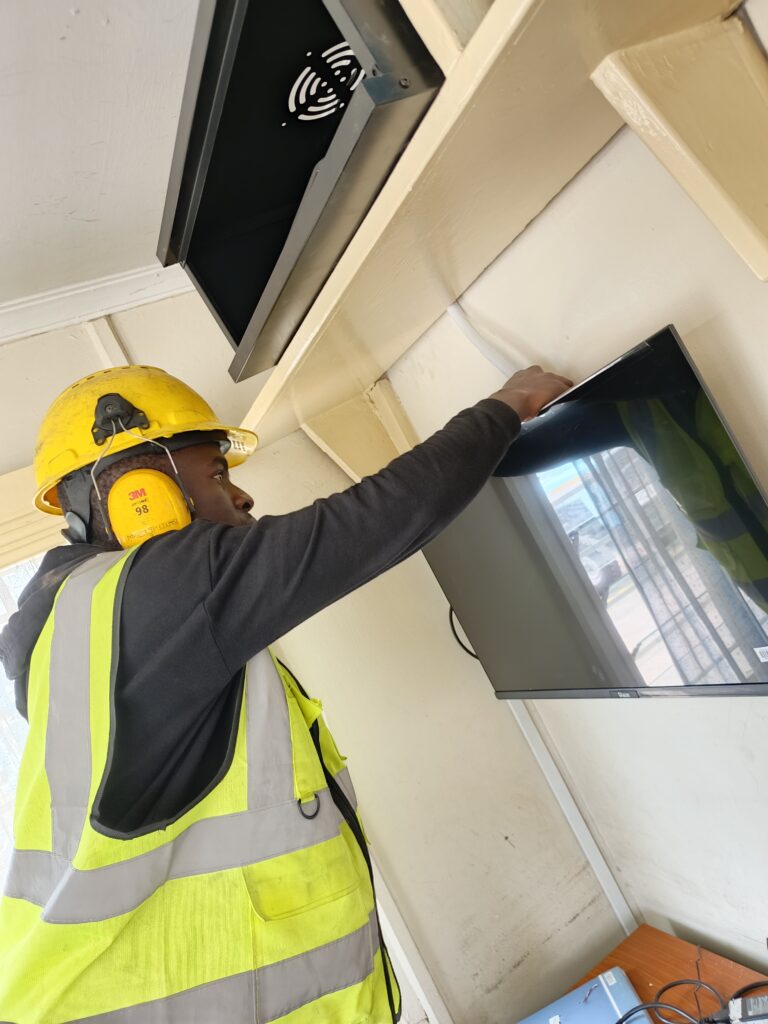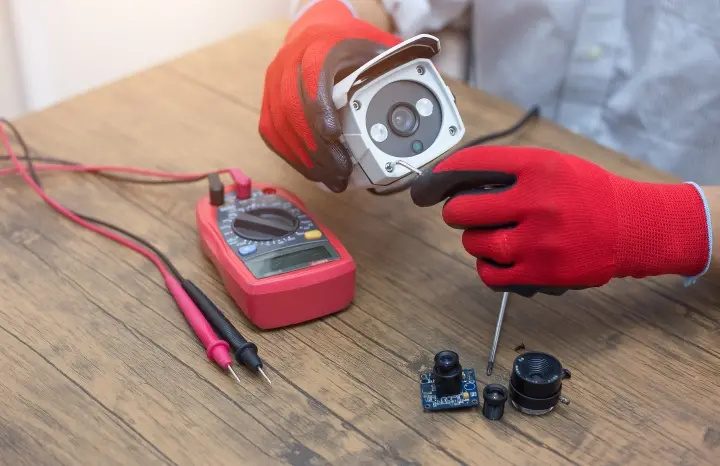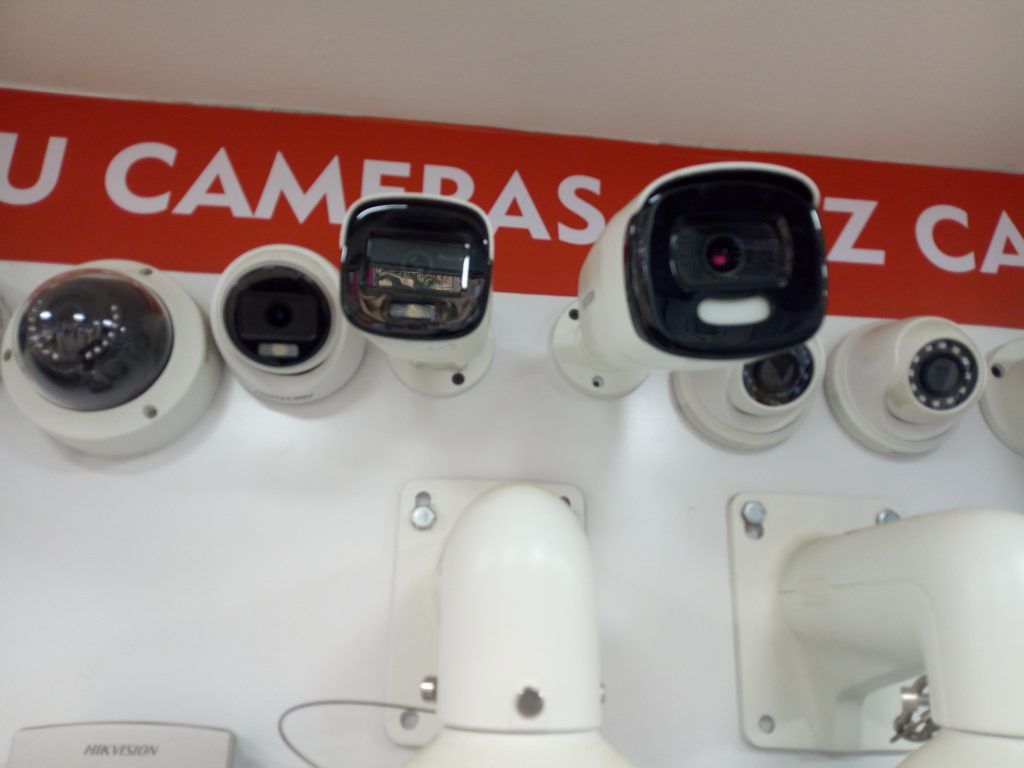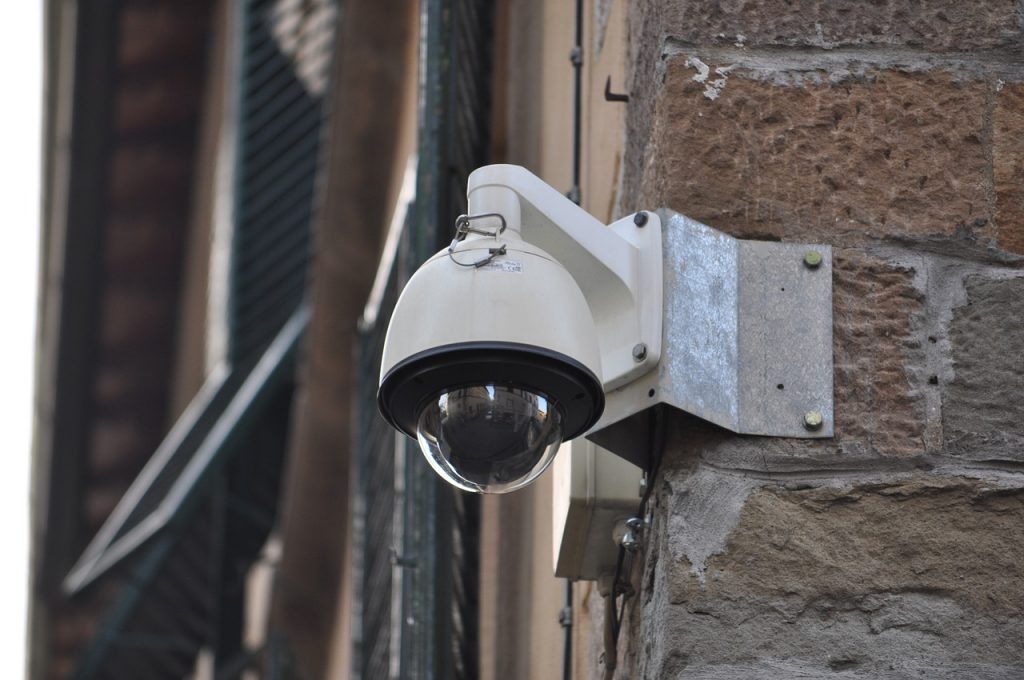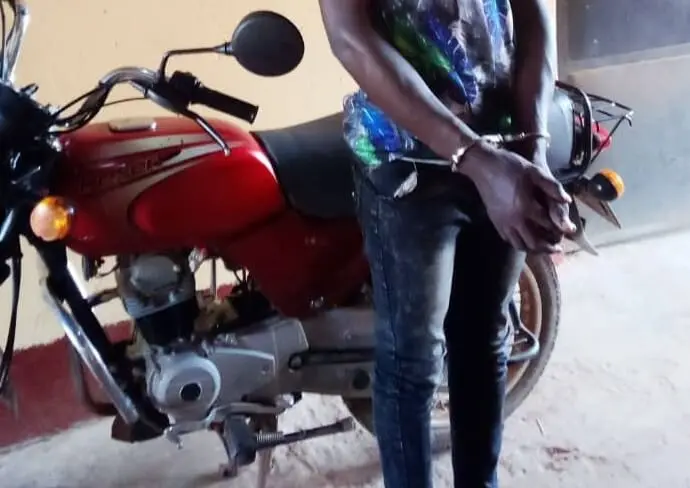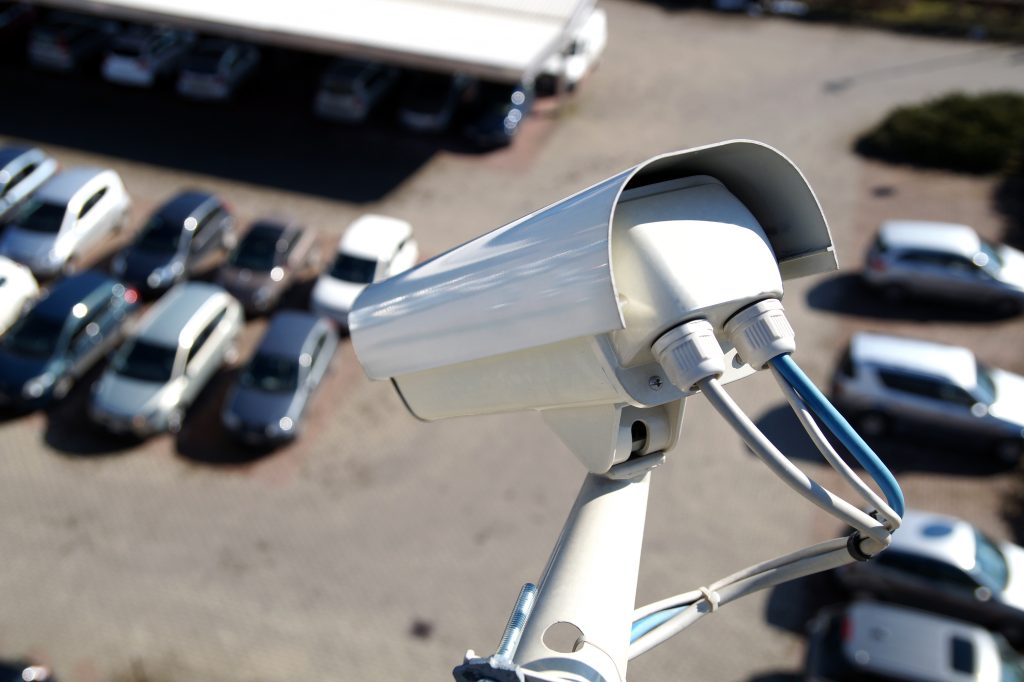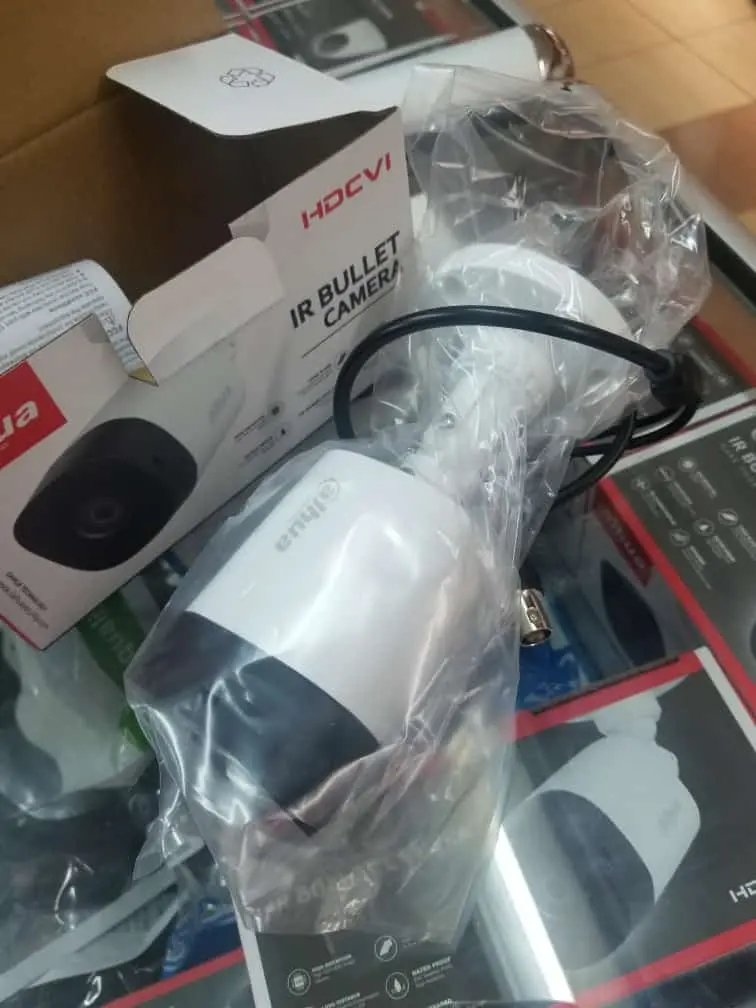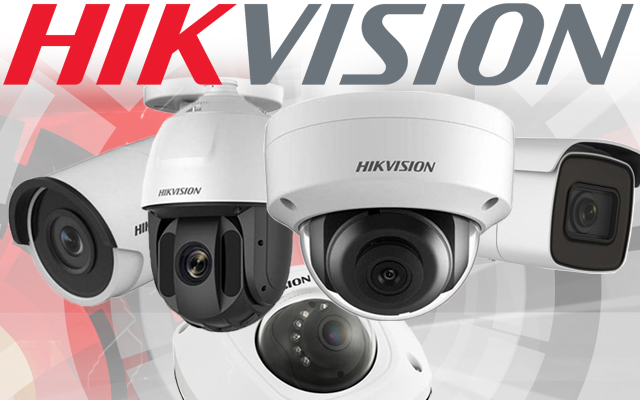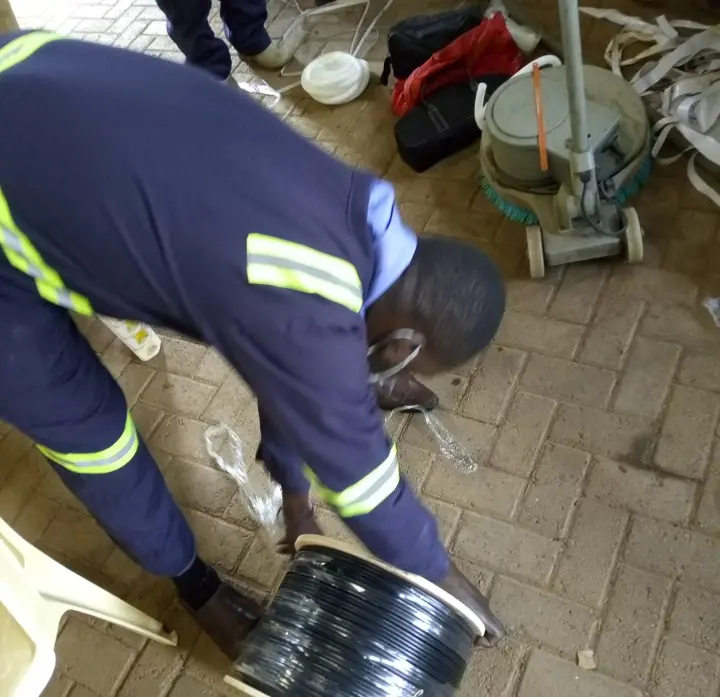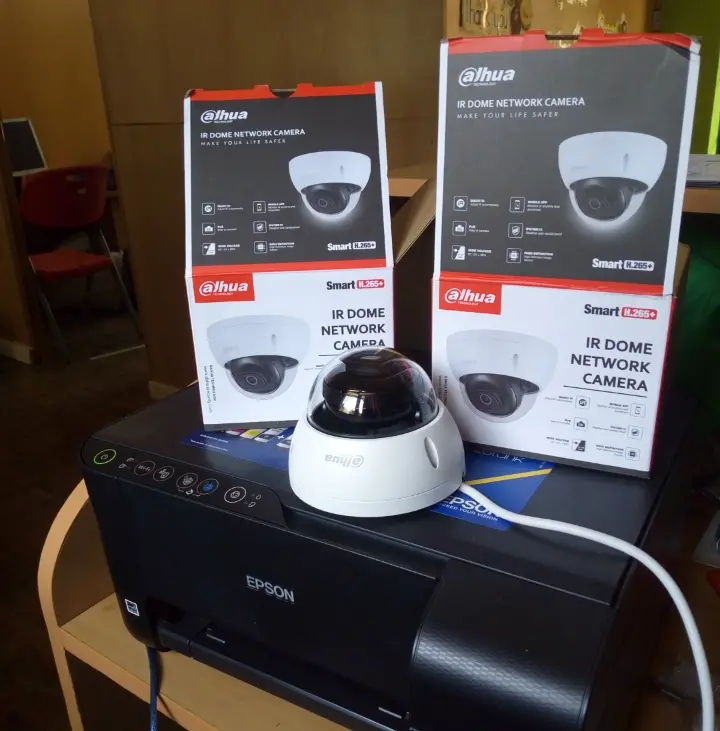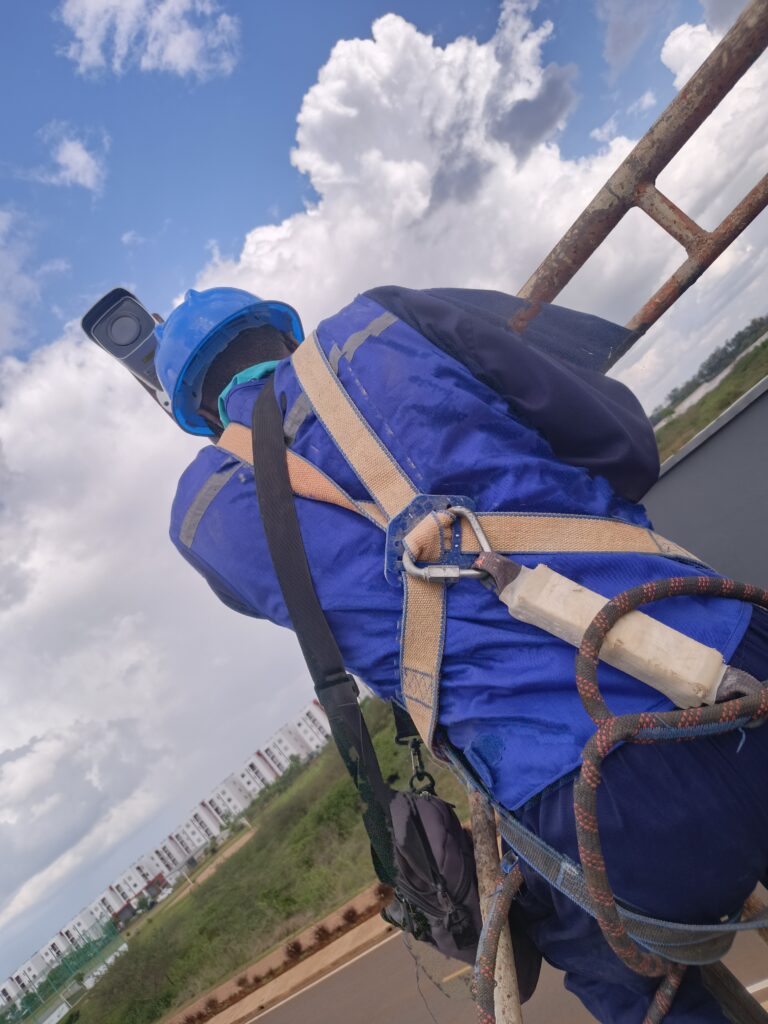Security Camera Maintenance Features & Best Practices for Optimal Performance
CCTV Security Camera Maintenance. Security cameras are a critical component of any surveillance system, but without proper maintenance, their effectiveness can decline over time. Regular security camera maintenance ensures optimal performance, increased security, and decreased downtime. By implementing proactive notifications, automatic security patches, and tamper detection, businesses and homeowners can keep their surveillance systems running smoothly. This blog explores essential security camera maintenance features, best practices, and answers frequently asked questions to help you maximize your CCTV system’s lifespan and efficiency.
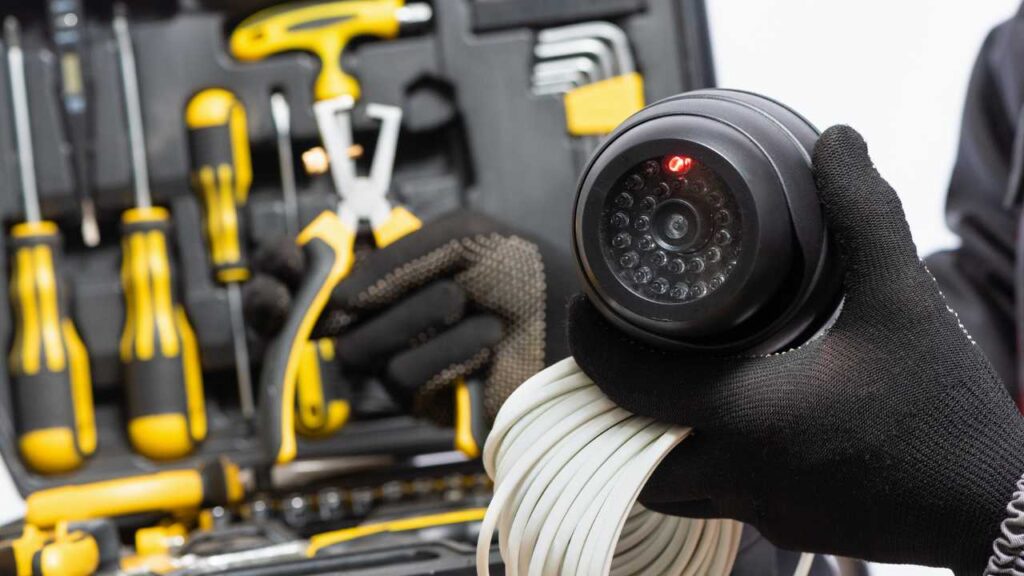
Preventive maintenance is key to avoiding costly repairs and ensuring longer life expectancy for surveillance cameras. Neglecting firmware updates or failing to check cables and wiring can lead to vulnerabilities and system failures. From camera placement to control equipment reviews, a well-maintained CCTV system enhances security while reducing repair costs. Below, we dive into the most important security camera maintenance features, FAQs, and the benefits of regular servicing to keep your surveillance system in top shape.
Automatic Security Patches & Firmware Updates
Keeping your security cameras up to date with the latest automatic security patches and firmware updates is crucial for protecting against cyber threats. Outdated firmware can leave cameras vulnerable to hacking, reducing their effectiveness in increased security measures. Automated updates ensure that your system stays protected without requiring manual intervention, minimizing downtime and maintaining optimal performance.
Regular firmware updates also introduce new features and improve existing functionalities, such as better motion detection or enhanced night vision. Enabling automatic updates ensures that your cameras always run the latest software, preventing compatibility issues and extending the life expectancy of your surveillance system. This simple yet essential maintenance step helps reduce repair costs by preventing software-related malfunctions.
Tamper Detection for Enhanced Security
Tamper detection is a vital security camera maintenance feature that alerts users when a camera is moved, covered, or otherwise interfered with. This technology helps prevent vandalism and unauthorized adjustments, ensuring continuous surveillance and increased security. When tampering is detected, the system can send proactive notifications, allowing for immediate action.
Without tamper detection, security breaches may go unnoticed, leading to gaps in surveillance coverage. This feature is especially important in high-risk areas where cameras are more likely to be targeted. By integrating tamper detection, businesses and homeowners can maintain optimal performance and avoid unexpected downtime, ultimately reducing repair costs and extending the system’s lifespan.
Proactive Notifications for Camera Downtime
Proactive notifications are essential for security camera maintenance, alerting users when a camera goes offline or malfunctions. These alerts help address issues before they escalate, minimizing downtime and ensuring continuous monitoring. Whether due to power failure, connectivity loss, or hardware problems, immediate notifications allow for quick troubleshooting.
By leveraging proactive notifications, businesses can maintain optimal performance and avoid prolonged surveillance gaps. This feature is particularly useful for large-scale CCTV systems where manual monitoring is impractical. Early detection of problems helps reduce repair costs and extends the life expectancy of cameras by addressing issues before they cause permanent damage.
CCTV Security Camera Maintenance FAQs
How Long Do Surveillance Cameras Last?
The life expectancy of cctv surveillance cameras typically ranges from 5 to 10 years, depending on usage, environment, and maintenance practices. High-quality cameras with regular firmware updates and proper cable and wire checks tend to last longer. Extreme weather, power surges, and lack of preventive maintenance can significantly shorten their lifespan.
To maximize longevity, ensure cameras are installed in optimal locations, receive automatic security patches, and undergo routine inspections. Proper security camera maintenance not only extends their usability but also maintains optimal performance and increased security over time.
What Is Camera Tampering?
Camera tampering occurs when someone intentionally obstructs, moves, or disables a surveillance camera, compromising its functionality. This can include spraying lenses, cutting wires, or physically damaging the device. Tamper detection features help mitigate these risks by triggering alerts when interference is detected.
Preventing camera tampering is crucial for maintaining increased security and avoiding downtime. Regular security camera maintenance, including checking camera placement and ensuring proper housing, can deter tampering attempts and keep your surveillance system operational.
How Do You Maintain a Security Camera System?
Effective security camera maintenance includes regular firmware updates, cable and wire checks, and cleaning lenses for clear footage. Inspecting control equipment and ensuring proper storage for recorded footage are also essential steps. Proactive notifications and tamper detection further enhance system reliability.
Scheduling routine preventive maintenance helps identify potential issues before they escalate, reducing repair costs and extending the system’s life expectancy. A well-maintained CCTV system delivers optimal performance and increased security, providing peace of mind for users.
How Often Should CCTV Be Serviced? Why Is Preventive Maintenance Important?
CCTV systems should undergo preventive maintenance at least once or twice a year to ensure optimal performance. Key tasks include checking camera placement, testing tamper detection, and verifying automatic security patches. Regular servicing helps decrease downtime and prevents unexpected failures.
Preventive maintenance is vital because it increases security, extends life expectancy, and reduces repair costs. By addressing minor issues early, businesses and homeowners can avoid costly replacements and maintain reliable surveillance coverage.
Benefits of Preventive Maintenance for CCTV Systems
Decreased Downtime
Regular security camera maintenance minimizes unexpected failures, decreasing downtime and ensuring continuous surveillance. Proactive checks on cables and wiring prevent connectivity issues that could disrupt monitoring.
By addressing potential problems early, businesses can avoid prolonged outages and maintain increased security. Scheduled inspections and proactive notifications keep systems running smoothly with minimal interruptions.
Life Expectancy Is Increased
Proper preventive maintenance significantly extends the life expectancy of surveillance cameras. Routine firmware updates, cleaning, and environmental checks protect cameras from wear and tear.
Investing in regular upkeep ensures that cameras remain functional for years, reducing repair costs and avoiding premature replacements. A well-maintained system delivers long-term reliability and optimal performance.
Optimal Performance
Consistent security camera maintenance ensures optimal performance, including clear video quality and accurate motion detection. Checking camera placement and cleaning lenses prevent blurred or obstructed footage.
Well-maintained cameras operate at peak efficiency, enhancing increased security and reducing false alarms. Regular control equipment reviews further optimize system functionality.
Increased Security
A properly maintained CCTV system provides increased security by eliminating blind spots and ensuring all cameras function correctly. Features like tamper detection and automatic security patches safeguard against breaches.
Regular preventive maintenance ensures that surveillance systems remain a reliable deterrent against theft, vandalism, and unauthorized access.
Repair Costs Are Being Reduced
Proactive security camera maintenance helps reduce repair costs by addressing minor issues before they escalate. Fixing loose cables and wires or updating firmware prevents major malfunctions.
Investing in routine servicing is more cost-effective than emergency repairs or full system replacements, ultimately saving money while maintaining optimal performance.
What Is Included in Preventive Maintenance for CCTV?
Placement of Camera
Ensuring proper camera placement is crucial for maximizing coverage and avoiding obstructions. Regular checks confirm that cameras are positioned correctly and haven’t shifted due to weather or tampering.
Adjusting angles and cleaning housings improves visibility and maintains optimal performance, contributing to increased security.
Cables and Wire Check
Inspecting cables and wiring prevents connectivity issues and power failures. Frayed or damaged wires can cause downtime and require costly repairs if left unchecked.
Routine security camera maintenance includes testing connections and replacing worn-out cables, ensuring uninterrupted surveillance and reducing repair costs.
Review of Control Equipment
Regularly reviewing control equipment, such as DVRs/NVRs and monitors, ensures they function correctly. Testing storage capacity and playback features prevents data loss.
Maintaining control equipment enhances system reliability, supporting optimal performance and increased security.
How Soon Is CCTV Preventive Maintenance Required?
For most systems, preventive maintenance should be performed every 6 to 12 months. High-traffic or harsh environments may require quarterly checks to ensure optimal performance. Waiting too long between inspections increases the risk of downtime and costly repairs. Consistent security camera maintenance keeps systems running efficiently while extending their life expectancy.
By following these best practices and security camera maintenance tips, you can ensure a reliable, long-lasting surveillance system that delivers increased security and peace of mind.
CCTV Preventive Maintenance FAQs
What Is CCTV Preventive Maintenance?
CCTV preventive maintenance involves regular inspections, cleaning, and updates.
It ensures optimal performance.
It reduces downtime and extends the life of surveillance cameras.
Why Is Preventive Maintenance Important for CCTV Systems?
Preventive maintenance increases security.
It reduces repair costs.
It ensures cameras operate at peak efficiency with minimal failures.
How Often Should CCTV Cameras Be Serviced?
Most CCTV systems should undergo preventive maintenance every 6 to 12 months.
High-traffic areas may require quarterly checks.
What Does CCTV Preventive Maintenance Include?
It includes firmware updates, lens cleaning, cable checks, power supply testing, and verifying recording functionality.
Can I Perform CCTV Maintenance Myself?
Basic maintenance like cleaning lenses can be done yourself.
Professional servicing ensures firmware updates and hardware inspections are performed correctly.
How Do I Clean a CCTV Camera Lens?
Use a microfiber cloth and lens cleaner to remove dust and smudges.
This ensures clear video quality.
What Are the Signs My CCTV System Needs Maintenance?
Blurry footage, flickering images, offline cameras, or storage errors indicate maintenance is needed.
How Do I Check CCTV Camera Cables for Damage?
Inspect cables for fraying, corrosion, or loose connections.
Replace damaged wires immediately.
What Happens If I Skip CCTV Maintenance?
Neglecting maintenance leads to system failures.
It creates security gaps.
It increases repair costs and shortens the camera’s lifespan.
How Can I Extend My CCTV Camera’s Lifespan?
Regular cleaning, firmware updates, proper power supply, and environmental protection help maximize longevity.
Do CCTV Cameras Need Software Updates?
Yes.
Firmware updates patch security vulnerabilities.
They also improve features like motion detection and night vision.
How Do I Update My CCTV Camera Firmware?
Check the manufacturer’s website or software portal for updates.
Follow installation instructions carefully.
What Is the Best Way to Store CCTV Recordings Long-Term?
Use cloud storage or high-capacity NVRs with RAID configurations.
This prevents data loss.
How Often Should I Replace CCTV Hard Drives?
CCTV hard drives typically last 3 to 5 years.
Replace them when storage errors or slow playback occur.
Can Weather Affect CCTV Cameras?
Extreme heat, cold, or moisture can damage cameras.
Use weatherproof housings for outdoor installations.
How Do I Protect CCTV Cameras from Power Surges?
Install surge protectors or uninterruptible power supply (UPS) systems.
This prevents electrical damage.
Why Is My CCTV Camera Overheating?
Poor ventilation, direct sunlight, or faulty power supplies can cause overheating.
Relocate or add cooling fans.
How Do I Reset a CCTV Camera to Factory Settings?
Use the reset button or access the camera’s settings menu.
Restore default configurations.
What Should I Do If My CCTV Camera Is Not Recording?
Check power, storage space, and recording settings.
Reformat the hard drive if necessary.
How Do I Test My CCTV System After Maintenance?
Verify live feeds and playback recordings.
Test motion detection and check remote viewing functionality.
CCTV Repair FAQs
Why Is My CCTV Camera Not Working?
Common causes include power failure, damaged cables, incorrect settings, or hardware malfunctions.
How Do I Fix a Blurry CCTV Camera?
Clean the lens and adjust the focus.
Check for obstructions or replace the camera if necessary.
Why Is My CCTV Camera Showing a Black Screen?
This could be due to power loss, damaged cables, or a defective camera sensor.
How Do I Repair a CCTV Camera with No Signal?
Check connections and test the power supply.
Reboot the system or replace faulty cables.
Why Is My CCTV Camera Offline?
Network issues, IP conflicts, or power interruptions can take cameras offline.
Restart the router or NVR.
How Do I Fix CCTV Camera Lag or Delay?
Reduce video resolution or upgrade bandwidth.
Check for network congestion in IP cameras.
Why Is My CCTV Camera Flickering?
Flickering may result from unstable power or faulty wiring.
Use a regulated power supply.
How Do I Fix Infrared (IR) Night Vision Issues?
Clean the IR lens and check the IR LED functionality.
Adjust night vision settings in the camera menu.
Why Is My CCTV Camera Not Detecting Motion?
Adjust sensitivity settings and ensure proper placement.
Check for firmware updates.
How Do I Repair a Water-Damaged CCTV Camera?
Disconnect power and dry the camera thoroughly.
Replace damaged components or use waterproof cameras outdoors.
Why Is My CCTV DVR/NVR Not Recognizing Cameras?
Recheck connections and reboot the system.
Reset camera configurations to factory defaults.
How Do I Fix Corrupted CCTV Footage?
Use data recovery software or restore from backup storage.
Format the hard drive if errors persist.
Why Is My CCTV System Not Recording Continuously?
Check storage capacity and recording schedule settings.
Verify hard drive health.
How Do I Troubleshoot CCTV Remote Viewing Issues?
Verify network settings and port forwarding.
Check mobile app configurations and ensure the system is online.
Why Are My CCTV Recordings Missing?
Overwritten footage or storage failure may cause missing recordings.
Increase storage capacity.
How Do I Fix a CCTV Camera with Poor Audio?
Check microphone connections and adjust audio settings.
Replace faulty audio components if needed.
Why Is My CCTV Camera Zoom Not Working?
PTZ issues may stem from motor failure.
Reset or recalibrate the camera.
How Do I Repair a CCTV Camera with Discolored Video?
Adjust white balance settings and clean the lens.
Replace a faulty image sensor if necessary.
Why Does My CCTV Camera Keep Restarting?
Power fluctuations or overheating can cause reboots.
Check the power supply and cooling systems.
How Do I Fix a CCTV System with No Power?
Test power outlets and check fuses.
Inspect wiring and replace damaged adapters or transformers.
CCTV Installation FAQs
What Is the Best Height to Install CCTV Cameras?
Mount cameras 8 to 10 feet high.
This provides optimal coverage while preventing tampering.
How Many CCTV Cameras Do I Need for My Property?
The number depends on coverage needs.
Typically, 4 to 8 cameras cover a standard home.
Businesses may need more.
What Is the Difference Between DVR and NVR CCTV Systems?
DVRs work with analog cameras.
NVRs support IP cameras with higher resolution and remote access.
How Do I Choose the Right CCTV Camera?
Consider resolution (1080p or 4K), night vision, weather resistance, and whether you prefer wired or wireless options.
Can I Install CCTV Cameras Myself?
DIY installation is possible with plug-and-play systems.
Professional setup ensures optimal placement and configuration.
What Is the Best CCTV Camera Placement for Maximum Security?
Cover entry points and blind spots.
Focus on high-traffic areas like driveways, doors, and hallways.
How Far Can CCTV Cameras See at Night?
Infrared night vision typically covers 30 to 100 feet.
This depends on camera specifications.
Do CCTV Cameras Work Without Internet?
Yes.
Local recording works without internet.
Remote viewing requires an internet connection.
How Do I Hide CCTV Camera Wires?
Use conduit or cable clips for wired cameras.
Wireless cameras provide a clean installation.
What Are the Legal Requirements for CCTV Installation?
Check local laws on privacy and signage.
Ensure compliance for recording in public or private spaces.

